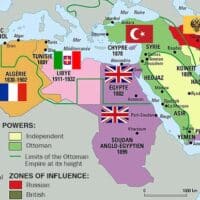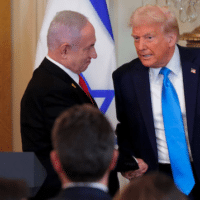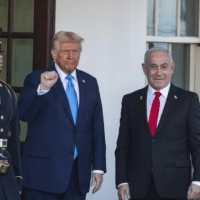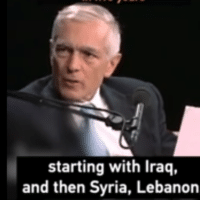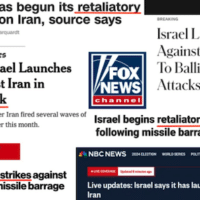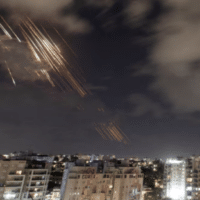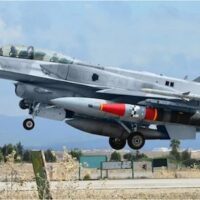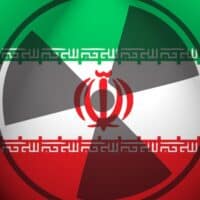-
Iranian diplomats suspect Trump using talks as instrument of sabotage
In Tehran, bewildered diplomats told me they suspect the Trump administration is exploiting nuclear negotiations as a instrument for generating instability to weaken Iran’s economy and foment social strife.
-
Diego Garcia: Ethnically cleansed for U.S. forever wars
As Trump threatens war on Iran, Washington weaponizes Diego Garcia–a Chagos island in the Indian Ocean built on ethnic cleansing, British colonialism, and military adventurism.
-
Russia–Iran–China: All for one, and one for all?
Although perhaps not yet obvious to Washington, a U.S. war on Iran will be viewed as one against Russia and China too. Both Putin and Xi know that Trump’s war is singularly directed at the transformational global ‘changes they are driving together.’
-
Trump’s war plans for Iran: opening the other gates of hell
There are many signs that Trump’s administration, supported by Israel, is intent on war with Iran, but the military realities point to a very dangerous quagmire, argues Chris Bambery.
-
U.S. massacres dozens of civilians in airstrikes on Yemen
Over the past year, the United States and Israel have waged a major regional war, coordinated with the Gaza genocide, targeting Lebanon, Syria, Yemen and Iran itself.
-
Conquered lands
To the victors, the spoils.
-
Trump issues sanctions on Iran, threatens to “obliterate” it if he’s killed
Trump has signed an executive order to exert pressure on Iran while also trying to obtain a nuclear deal.
-
Trump reiterates plan to remove Palestinians from Gaza following Netanyahu meeting at White House
On Tuesday Israeli Prime Minister Benjamin Netanyahu became the first foreign leader to meet Donald Trump in The White House during his second term. During the meeting, Trump doubled down on previous suggestions to remove Palestinians from Gaza.
-
America’s plan after 9/11: Taking out seven countries in five years
An alarming truth revealed by retired U.S. four-star general Wesley Clark.
-
Now Iran’s turn. The spectre of a new “1989”
Iran is now the key to the world.
-
Israel’s chemical weapons stockpile is a global threat, Iran warns
Israel is one of only four countries in the world that refuse to ratify the Chemical Weapons Convention. It has also been accused of using banned substances against civilians in Gaza and Lebanon.
-
Lying Western press scramble to frame Israel’s attack on Iran as self-defense
Israel has launched a round of airstrikes on Iran which the western news media are falling all over themselves to falsely frame as “retaliatory” strikes against an unprovoked missile attack by Iran.
-
Media hawks make case for war against Iran
The media hawks are flying high, pushing out bellicose rhetoric on the op-ed pages that seems calculated to whip the public into a war-ready frenzy.
-
The Israeli intelligence leaks
An ugly glimpse into a dark future.
-
Washington keeps silent after Israel arrests U.S. journalist over report on Iran attack
The U.S. government has yet to comment on the case of Jeremy Loffredo, an independent U.S. journalist who remains in Israeli police detention on suspicion of “endangering national security.” Loffredo may potentially face life imprisonment or the death penalty after reporting the locations where Iranian missiles struck in the attack launched by Iran earlier this […]
-
CIA says no evidence Iran has decided to build a nuclear weapon
The comments from CIA Director William Burns come amid calls for Israel to strike Iran’s nuclear facilities.
-
Washington sets trap for Iran, will Iran take the bait?
Amid the ongoing conflict in Ukraine and growing tensions in the Asia-Pacific, Washington is moving toward an equally dangerous, regional war in the Middle East between its Israeli proxies and a growing list of neighboring states and organizations.
-
The premises of the diplomatic mission shall be inviolable: The Fifteenth Newsletter (2024)
From Israel’s bombing of Iran’s embassy in Damascus to Ecuador’s raid on the Mexican embassy in Quito, leaders feel emboldened by the impunity granted by the Global North to disregard diplomatic norms and respect.
-
Corporate power is killing the planet
In the 1950s, a system of corporate courts was created to allow Western businesses to sue the Global South for threatening their profits—and now fossil fuel giants are using it to stop any country from fighting the climate crisis.
-
In Gaza, the West is enabling the most transparent genocide in human history
This is extraordinary because the states supporting Israel, above all the United States, have claimed the high moral and legal ground and lectured the states of the Global South about the importance of the rule of law.

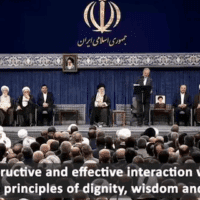

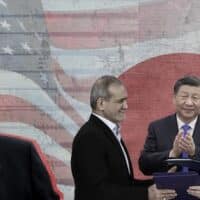

![This photo taken from video released by the Ansar Allah Media Office via the Al Masirah TV channel shows a human being taken for treatment at a hospital in Sanaa, Yemen, Saturday, March 15, 2025 following US airstrikes on the country. [AP Photo/Al Masirah TV]](https://mronline.org/wp-content/uploads/2025/03/Yemen-Bombing-200x200.jpg)
